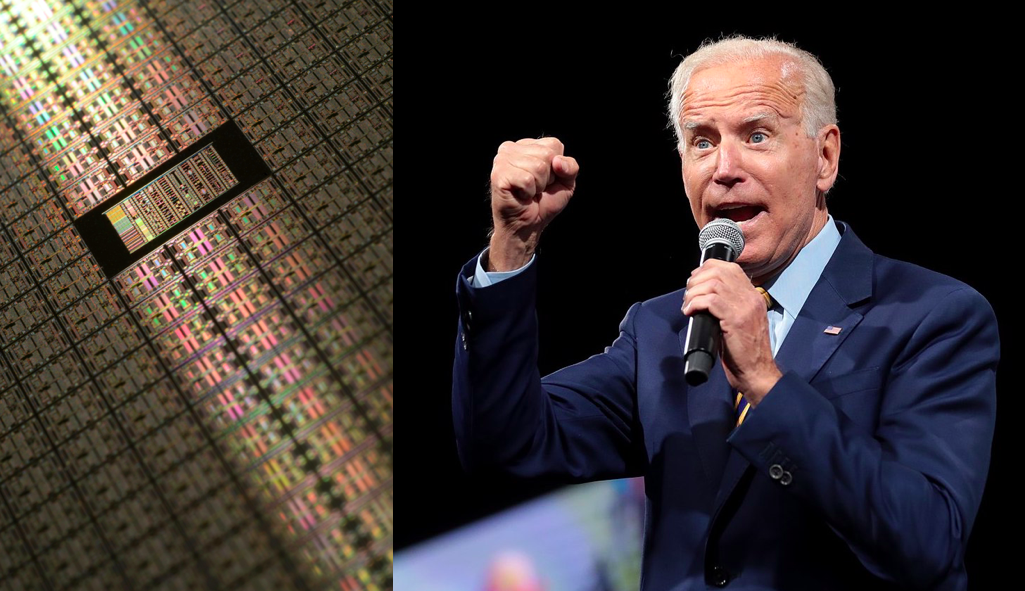The chip debate is a bit too cheap

Free and sideline considerations of Alberto Mingardi's analysis in Corriere della Sera regarding the Biden plan for microchips. Francis Walsingham's letter
Dear director,
what was that saying about not adding apples and pears?
It came to mind when I read the analysis by Alberto Mingardi, director of the Bruno Leoni Institute, in L'Economia del Corriere della Sera . In the article, the liberal intellectual argues that US public subsidies for domestic microchip manufacturing are slowing down investment rather than accelerating it. Frankly, I don't think so: according to the Semiconductor Industry Association (i.e. the association representing the American – private, ça va sans dire – semiconductor industry), the CHIPS Act (i.e. Joe Biden's plan which allocates 52 billion dollars of incentives to microchip foundries) has stimulated investments of 250 billion dollars as early as December 2022, i.e. just four months after approval.
I believe I have understood what Mingardi's real intention was, namely to reiterate the primacy of the free market and private initiative over the dirigisme of governments. It is a message that I essentially share, as an Italian with an Anglo-Saxon background and as a spectator of the (often tragicomic) Italian reality; but Mingardi's position seems to me to be too partial and perhaps even a little confused: apples and pears don't add up.
Italy and Europe are not the United States, first of all, as regards the invasiveness of the State in the productive sectors. And then – indeed: above all – we must remember that the objective of Biden's maneuver is first political and then economic, and therefore it is incomprehensible in its essence if you move the magnifying glass on companies rather than on the government.
I'll explain. The White House does not want to achieve global leadership in the manufacturing of microchips "only" (so to speak) because this leadership generates employment and GDP; but first and foremost because the primacy in the manufacturing of a critical technology such as the microchip is a guarantee of political power. The United States cannot remain the world's leading superpower if it does not master the technologies of the 21st century. I'm not saying it, Biden is saying it:
There's going to be more technological change in the next 10 years – or even the next 5 years – than in the last 50.
And I want America to lead that change.
— President Biden (@POTUS) October 24, 2023
“There will be more technological changes in the next ten years – or even the next five – than in the last fifty. And I want America to lead that change.” Clearer than that. And in fact his administration is not investing in the energy efficiency of buildings – that's us -, but in critical technologies for the future: semiconductors, with the CHIPS Act; clean energy, with the Inflation Reduction Act. Digital transition and ecological transition, they would say in Brussels (but between saying and doing…).
Let me be clear: I am not saying that Biden's approach is in itself successful and right. Like everything, it is debatable and has its points of criticism. But in order to be judged, it must first be understood.
It has nothing to do with the satisfaction of American consumers with their smartphones and tablets stuffed with microchips, as Mingardi writes; The future of America as a technological, and therefore political, superpower has something to do with it. They are two different things: a consumer does not care where the chip comes from, as long as it is efficient and as cheap as possible; the White House is interested in the chip being efficient, of course, and that it is made in the USA.
For the United States, the problems do not lie in consumer choices, which are also part of the game, but in three issues that are increasingly emerging in 2024:
1) The so-called "strategic" semiconductors (for example those used in armaments) are not always the most "advanced" so if you invest only in an "advanced" part which costs a lot you may find yourself actually financing smartphone components which it is less strategic than something less “advanced”.
2) To become a manufacturing power again, you need to have a suitable workforce. And it has yet to be demonstrated that the US one is.
3) Biden has made these political-manufacturing bets often in states that lean towards the Republicans, also for political reasons, given that Biden is a real politician, and even if he is not in good shape he is anything but stupid. Except that the polls currently say that this titanic effort hasn't moved much. So who knows.
In short – dear director – liberalism can wait, even in the United States. Long live political capitalism, as Alessandro Aresu writes .
Best regards,
Francis Walsingham
This is a machine translation from Italian language of a post published on Start Magazine at the URL https://www.startmag.it/economia/mingardi-capitalismo-stato-privati/ on Tue, 05 Mar 2024 06:58:19 +0000.
